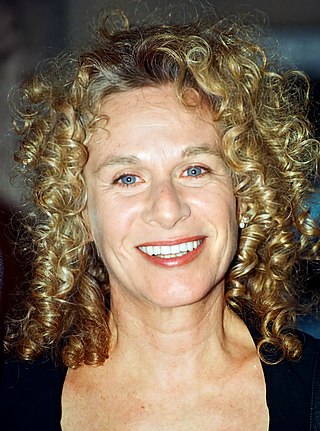
Carole King Klein is an American singer-songwriter and musician. One of the most successful songwriters in American history, she wrote or co-wrote 118 pop hits appearing on the Billboard Hot 100 over the latter half of the 20th century. King also wrote 61 hits that charted in the UK, making her the most successful female songwriter on the UK singles charts between 1962 and 2005.

Tapestry is the second studio album by American singer-songwriter Carole King. Produced by Lou Adler, it was released on February 10, 1971, by Ode Records. The album's lead singles, "It's Too Late" and "I Feel the Earth Move", spent five weeks at number one on both the Billboard Hot 100 and Easy Listening charts.
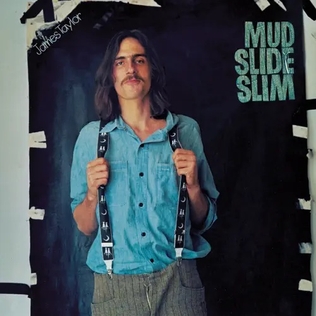
Mud Slide Slim and the Blue Horizon is the third studio album by American singer-songwriter James Taylor, released in April 1971 by Warner Bros. Records. The album was recorded between early January and late February of the same year.

"You've Got a Friend" is a 1971 song by American singer-songwriter Carole King. It was first recorded by King and included on her second studio album, Tapestry (1971). Another well-known version by James Taylor appears on his album Mud Slide Slim and the Blue Horizon. His was released as a single in 1971, reaching number one on the Billboard Hot 100 and number four on the UK Singles Chart. The two versions were recorded simultaneously in 1971 with shared musicians.

Greatest Hits, later re-released as Greatest Hits 1973–1988, is the first greatest hits compilation album by American hard rock band Aerosmith, released by Columbia Records on November 11, 1980.
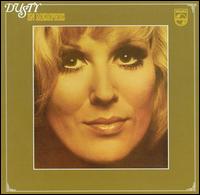
Dusty in Memphis is the fifth studio album by English singer Dusty Springfield, released on 31 March 1969 in the United States by Atlantic Records and by Philips Records internationally. Springfield worked on the album with a team of musicians and producers that included Jerry Wexler, Arif Mardin, Tom Dowd, conductor Gene Orloff, backing vocalists the Sweet Inspirations, bassist Tommy Cogbill, and guitarist Reggie Young. Initial sessions were recorded at American Sound Studio in Memphis, while Springfield's final vocals and the album's orchestral parts were recorded at Atlantic Records' New York City studios.

The Best of The Byrds: Greatest Hits, Volume II is the third greatest hits album by the American rock band the Byrds, but only the second to be released in the United States, since the earlier The Byrds' Greatest Hits Volume II had only been issued in the UK. The album was released in the U.S. by Columbia Records on November 10, 1972 in lieu of any new Byrds' product during that year. It spent a total of thirteen weeks on the Billboard Top LPs & Tapes chart and peaked at number 114.

Gems is a compilation album released by Aerosmith in 1988 under the label Columbia. It was the first compilation of studio material since 1980's Greatest Hits. Concentrating mainly on heavier material than the radio-friendly singles output on Greatest Hits, the album is noted for the inclusion of the 1978 studio version of "Chip Away The Stone" – previously released as a single from 1978's Live! Bootleg, only a live rendition of the song was released at the time. Originally scheduled for release on November 8, 1988, the album was delayed one week and issued on November 15, 1988.
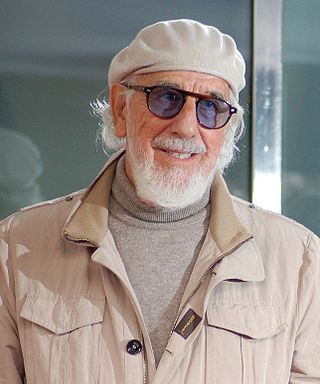
Lester Louis Adler is an American record and film producer and the co-owner of the Roxy Theatre in West Hollywood, California. Adler has produced and developed a number of high-profile musical artists, including The Grass Roots, Jan & Dean, The Mamas & the Papas, and Carole King. King's album Tapestry, produced by Adler, won the 1972 Grammy Award for Album of the Year and has been called one of the greatest pop albums of all time.
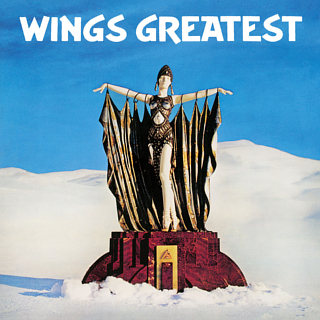
Wings Greatest is a compilation album by the British–American rock band Wings, released in the UK on 1 December 1978. It was the band's last release through Capitol in the US. The album is notable as being the first official retrospective release from Paul McCartney's post-Beatles career.
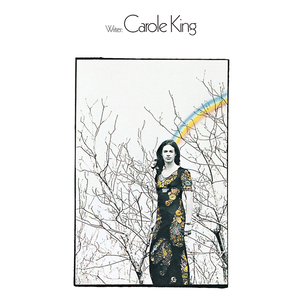
Writer is the debut studio album by American singer-songwriter Carole King, released in May 1970. King already had a successful career as a songwriter, and been a part of The City, a short-lived group she formed after moving to Los Angeles in 1968. Tracks on the album include "Up on the Roof" which was a number 4 hit for the Drifters in 1962, and "Child of Mine", which has been recorded by Billy Joe Royal, among others. The album did not receive much attention upon its release, though it entered the chart following the success of King's next album, Tapestry, in 1971. It was produced by John Fischbach, the co-founder of Crystal Sound studio, in Hollywood, California, where the album was recorded.

Carole King Music is the third studio album by American singer-songwriter Carole King. The album was released in December 1971.

"It's Too Late" is a song from American singer-songwriter Carole King's second studio album, Tapestry (1971). Toni Stern wrote the lyrics and King wrote the music. It was released as a single in April 1971 and reached No. 1 on the Billboard Hot 100 and Adult Contemporary charts. Sales were later platinum-certified by the Recording Industry Association of America (RIAA). Billboard ranked "It's Too Late" and its fellow A-side, "I Feel the Earth Move", as the No. 3 record for 1971.

"(You Make Me Feel Like) A Natural Woman" is a 1967 song by American soul singer Aretha Franklin released as a single by the Atlantic label. The lyrics were written by Gerry Goffin from an idea by Atlantic producer Jerry Wexler, and the music was composed by Carole King. Written for Franklin, the record reached number 8 on the Billboard Hot 100, and became one of her signature songs. It made history on the UK Singles Chart a week after her death, finally becoming a hit almost 51 years after it was first released, entering at No. 79. Franklin also included a live recording on the album Aretha in Paris in 1968.
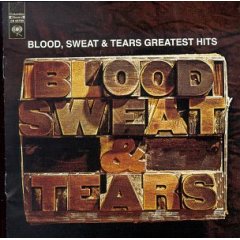
Greatest Hits is a compilation album by the band Blood, Sweat & Tears, initially released in February 1972.
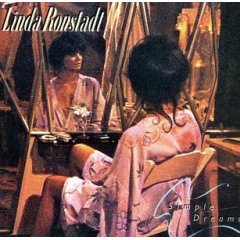
Simple Dreams is the eighth studio album by the American singer Linda Ronstadt, released in 1977 by Asylum Records. It includes several of her best-known songs, including her cover of the Rolling Stones song "Tumbling Dice" and her version of the Roy Orbison song "Blue Bayou", which earned her a Grammy nomination for Record of the Year. The album also contains covers of the Buddy Holly song "It's So Easy!" and the Warren Zevon songs "Poor Poor Pitiful Me" and "Carmelita".

Thoroughbred is the seventh album by American singer-songwriter Carole King, released in 1976. Her final release on Ode Records, it was produced by Lou Adler, who had been her collaborator since Tapestry (1971). After Carole King self-produced for a number of years on Capitol and Atlantic Records, Lou Adler later rejoined King to produce her 1984 album Speeding Time.

“So Far Away” is a song written by Carole King, which appeared on her 1971 album Tapestry. The recording features James Taylor on acoustic guitar. In addition to Taylor, and King on piano, instruments include Russ Kunkel on drums, Charles Larkey on bass guitar and Curtis Amy on flute.
"Where You Lead" is a song written in 1970 by Carole King with lyricist Toni Stern, introduced on King's iconic 1971 album Tapestry. A Top 40 hit for Barbra Streisand in both a studio and a live version—the latter in a medley titled "Sweet Inspiration/ Where You Lead"—the song has also served as the main theme song for The WB dramedy series Gilmore Girls in a lyrically revised version recorded by King and Louise Goffin.

The discography of Carole King, an American singer-songwriter and musician, consists of 17 studio albums, four live albums, seven compilation albums, one soundtrack album and 33 singles as a lead artist.


















